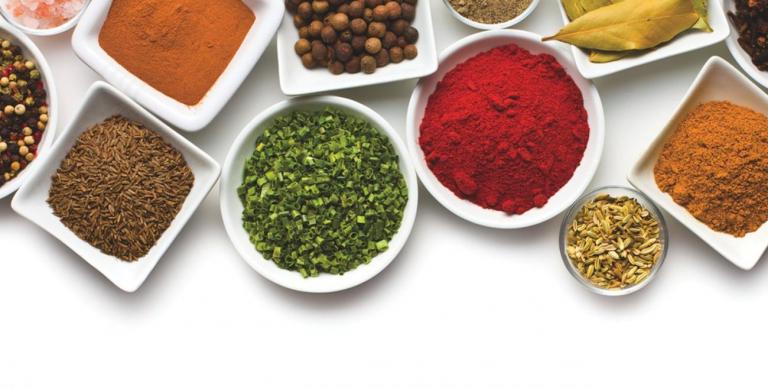During the Middle Ages, cinnamon, nutmeg, cloves, and pepper were the spices most prized by traders and were considered luxury items.
Fortunately these days it's no longer a trip around the world, but a simple stop at the store to buy these and many other exotic flavorings.
Savor and delight
Even the simplest of dishes can come alive with the addition of herbs and spices. If you've been hesitant in adding new flavors to your recipes because you don't like spicy foods, remember: Spice doesn't always equal heat.
Salt and pepper certainly have their place in the kitchen, but so do nutmeg, cloves, turmeric, basil, cumin, garlic, oregano, and many other herbs and spices. And while chili powder, horseradish, and cayenne pepper certainly pack a punch in the heat department, others like cinnamon, cardamom, allspice, and tarragon add depth of flavor and complexity to food.
Here are some quick tips to remember when working with herbs and spices.
- Add dried herbs in the last 30 minutes of cooking for maximum effect.
- If substituting fresh herbs for dried ones in a recipe, the conversion is 3 parts fresh to 1 part dried. Chop fresh herbs very finely to expose as much surface area as possible. This allows the most flavors to be released.
- Add fresh herbs at the end of a recipe for the best appearance and flavor. They can discolor if overcooked.
How to store spices and fresh herbs
- Whole and ground spices should be kept in a cool, dry cupboard or pantry away from heat, moisture, and light, which can affect their quality. Ground spices lose their strength after about six months. Whole spices generally keep for 6 months or longer. Label the spice bottle with its date of purchase, so you'll know when to replace it.
- Fresh herbs are best used the day they're bought. But they can be stored for several days in the fridge, upright with stems or roots in a glass of water. For longer life, chop fresh herbs into a paste, add a very small amount of olive oil, and store in a tightly sealed container in the freezer where they will last for up to six months.

